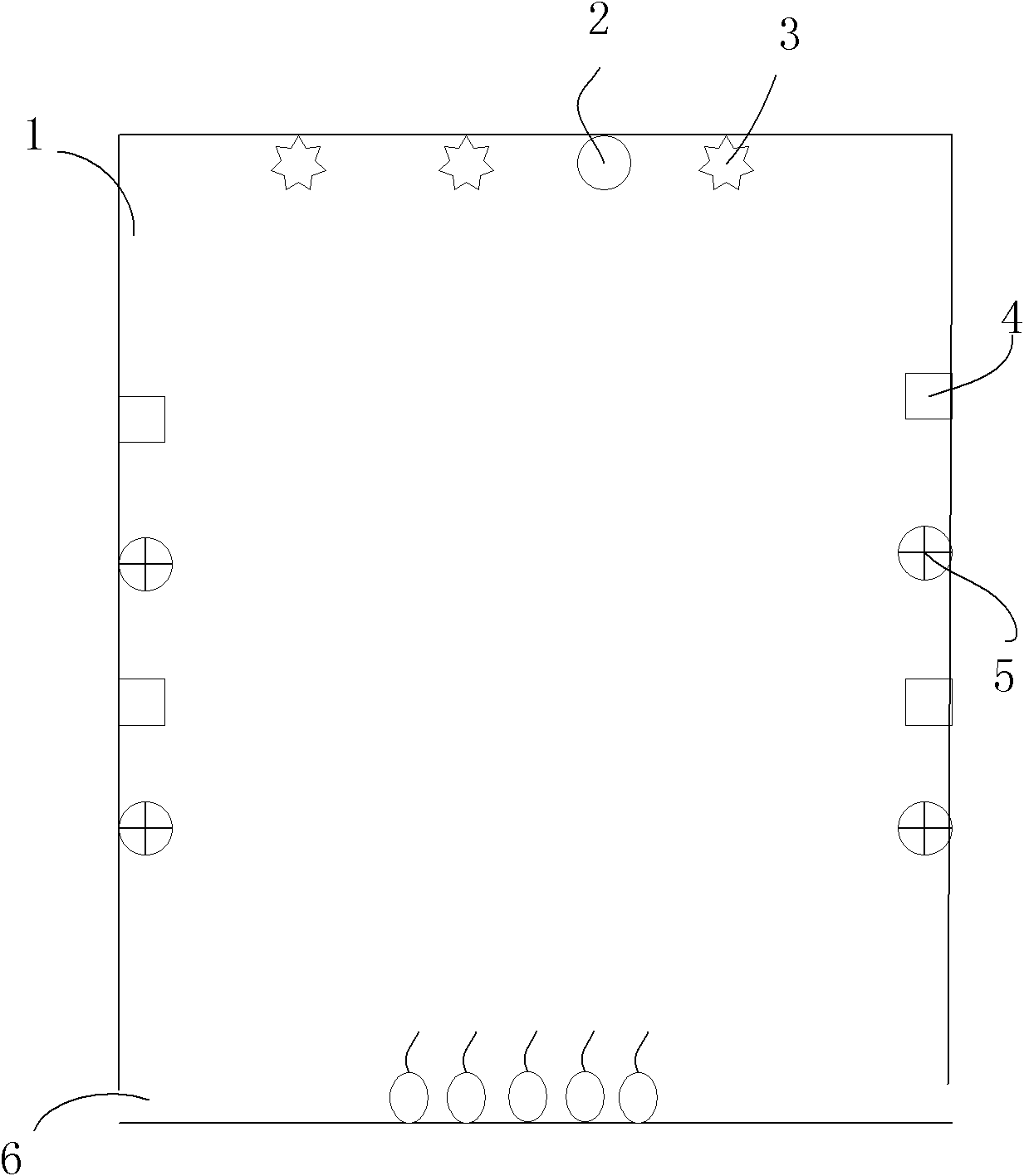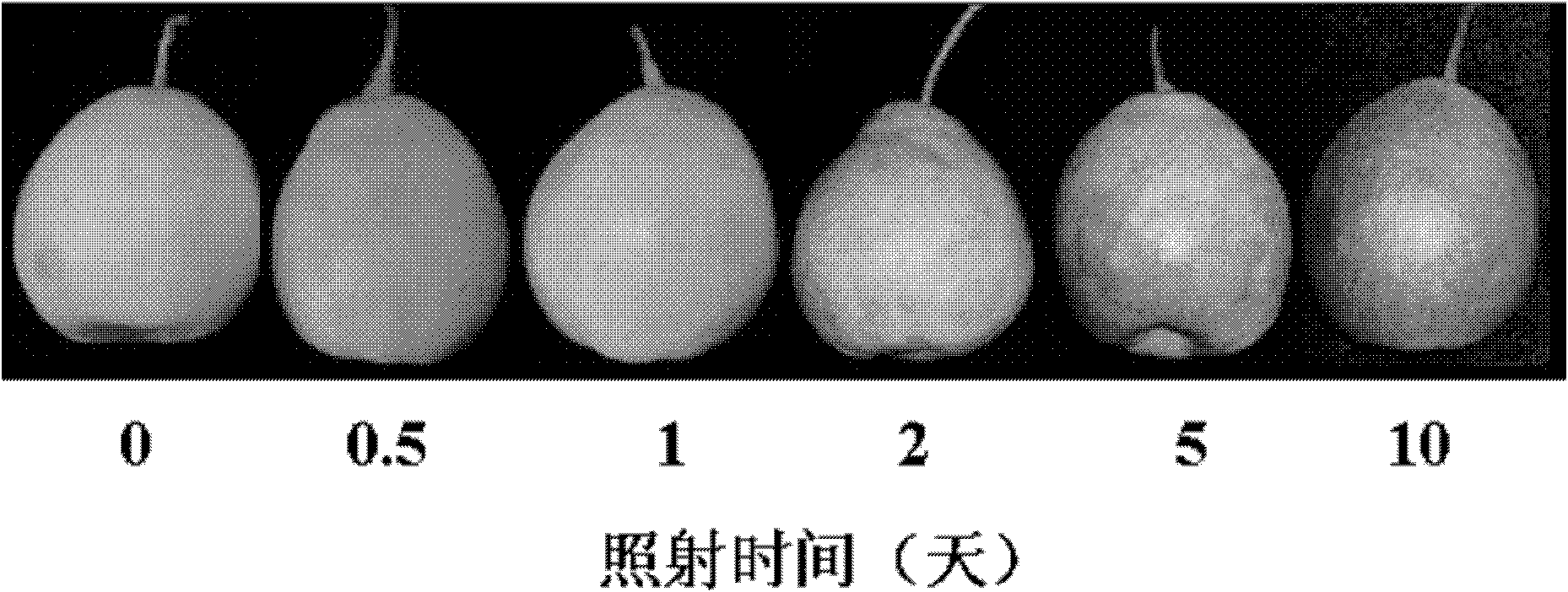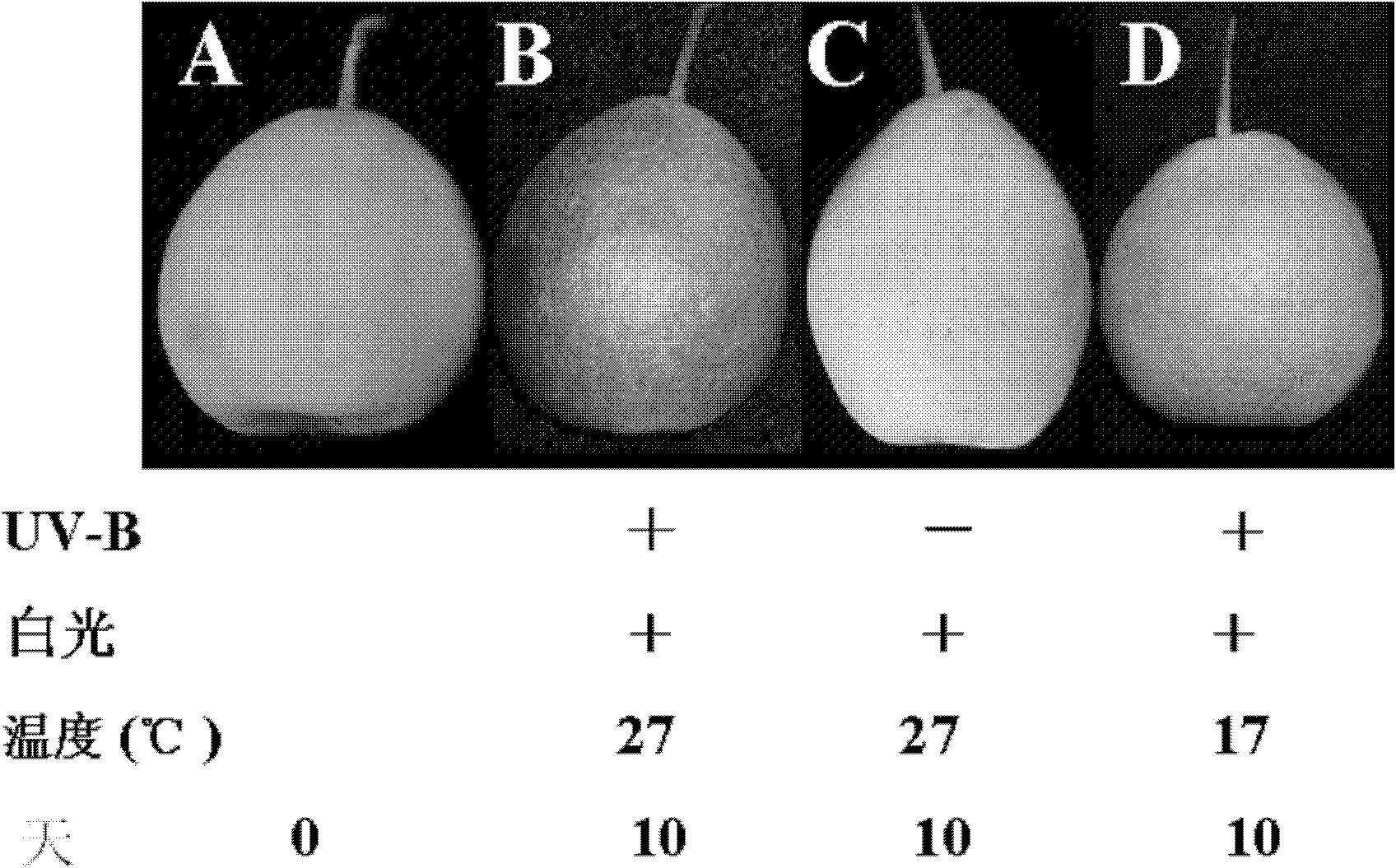Device and method for coloring red Chinese sand pears after harvesting
A sand pear and post-harvest technology is applied in the field of post-harvest coloring devices for red sand pears, which can solve the problems of large fruit pollution, high cost, complicated operation, etc., and achieve the effects of easy promotion, low cost and broad market prospects.
- Summary
- Abstract
- Description
- Claims
- Application Information
AI Technical Summary
Problems solved by technology
Method used
Image
Examples
Embodiment 1
[0024] On October 9, 2009, the orchard (25°N, 102°E) of Yunnan Red Pear Technology Development Co., Ltd. in Kunming City, Yunnan Province has reached physiological maturity, and the fruit development stage is covered with opaque fruit bags that have not yet been colored. The red sand pear 'Yunhongli No. 1' was placed in the following temperature and light environment,
[0025] 1) High temperature (average temperature is 27.1°C, average daily temperature difference is about 11.5°C) + UV-B + white light, HTUVB (+);
[0026] 2) High temperature (average temperature is 27.1°C, average daily temperature difference is about 11.5°C) + white light, HTUVB(-);
[0027] 3) Low temperature (average temperature 17.7±1°C)+UV-B+white light, LTUVB(+).
[0028]The lighting conditions are controlled as follows: the height of the light source from the ground is 2.0m, and the artificial light source includes one 20WUV-B (280-315nm) light source (Philips, TL 20W / 12RS, Netherlands) and three 36W o...
Embodiment 2
[0035] On August 25, 2010, the pear 'Mantianhong', a red sand pear that has not yet been colored, was picked at the Jindi fruit tree demonstration field in Xingyang City, Zhengzhou City, Henan Province, and has reached physiological maturity. temperature and light environment,
[0036] 1) High temperature (average temperature is 28.3°C, average daily temperature difference is about 10.7°C) + UV-B + white light, HTUVB(+);
[0037] 2) High temperature (average temperature is 28.3°C, average daily temperature difference is about 10.7°C) + white light, HTUVB(-);
[0038] 3) Low temperature (average temperature 17.7±1°C)+UV-B+white light, LTUVB(+).
[0039] The lighting conditions are controlled as follows: the height of the light source from the ground is 2.0m, and the artificial light source includes one 20WUV-B (280-315nm) light source (Philips, TL 20W / 12RS, Netherlands) and three 36W ordinary fluorescent lamps (FSL T 8 36W / 765, China) light source, the UV-B light intensity of...
PUM
 Login to View More
Login to View More Abstract
Description
Claims
Application Information
 Login to View More
Login to View More - R&D
- Intellectual Property
- Life Sciences
- Materials
- Tech Scout
- Unparalleled Data Quality
- Higher Quality Content
- 60% Fewer Hallucinations
Browse by: Latest US Patents, China's latest patents, Technical Efficacy Thesaurus, Application Domain, Technology Topic, Popular Technical Reports.
© 2025 PatSnap. All rights reserved.Legal|Privacy policy|Modern Slavery Act Transparency Statement|Sitemap|About US| Contact US: help@patsnap.com



